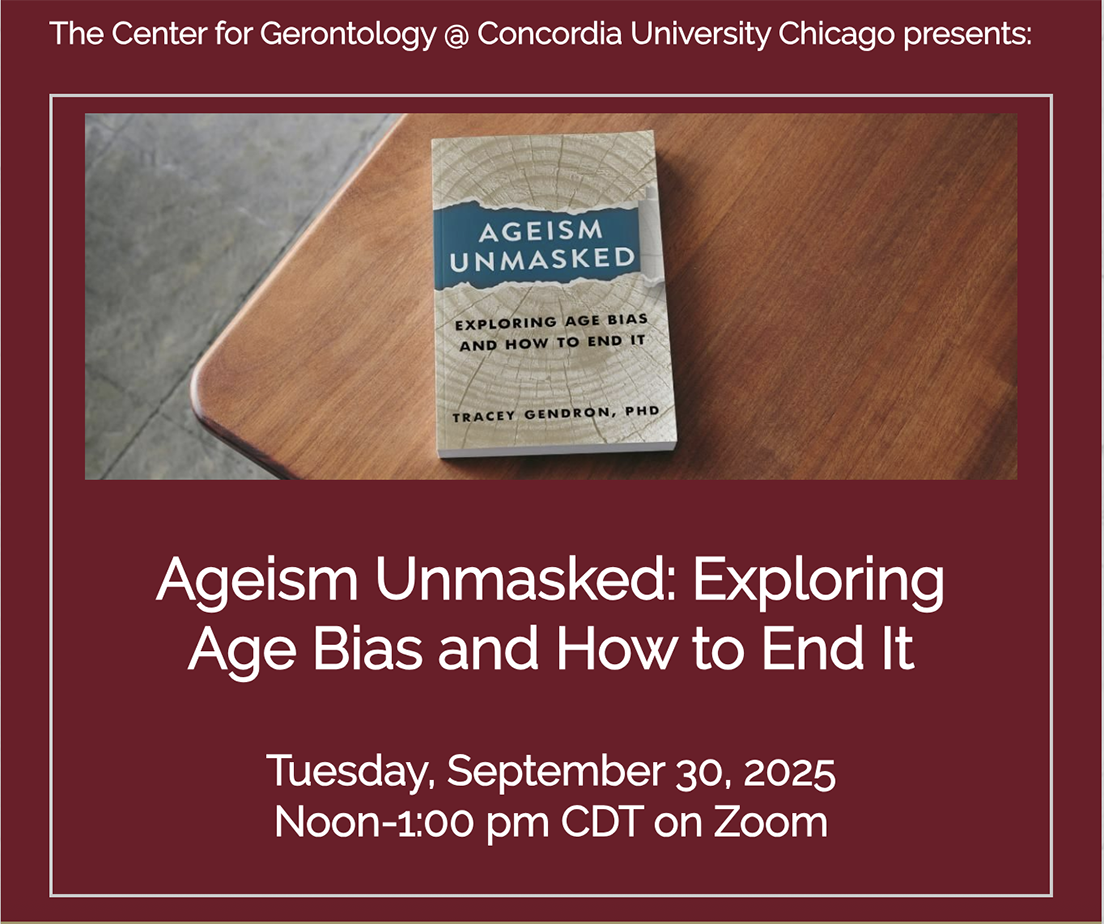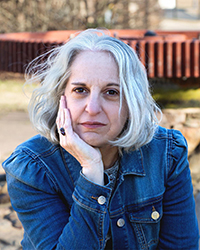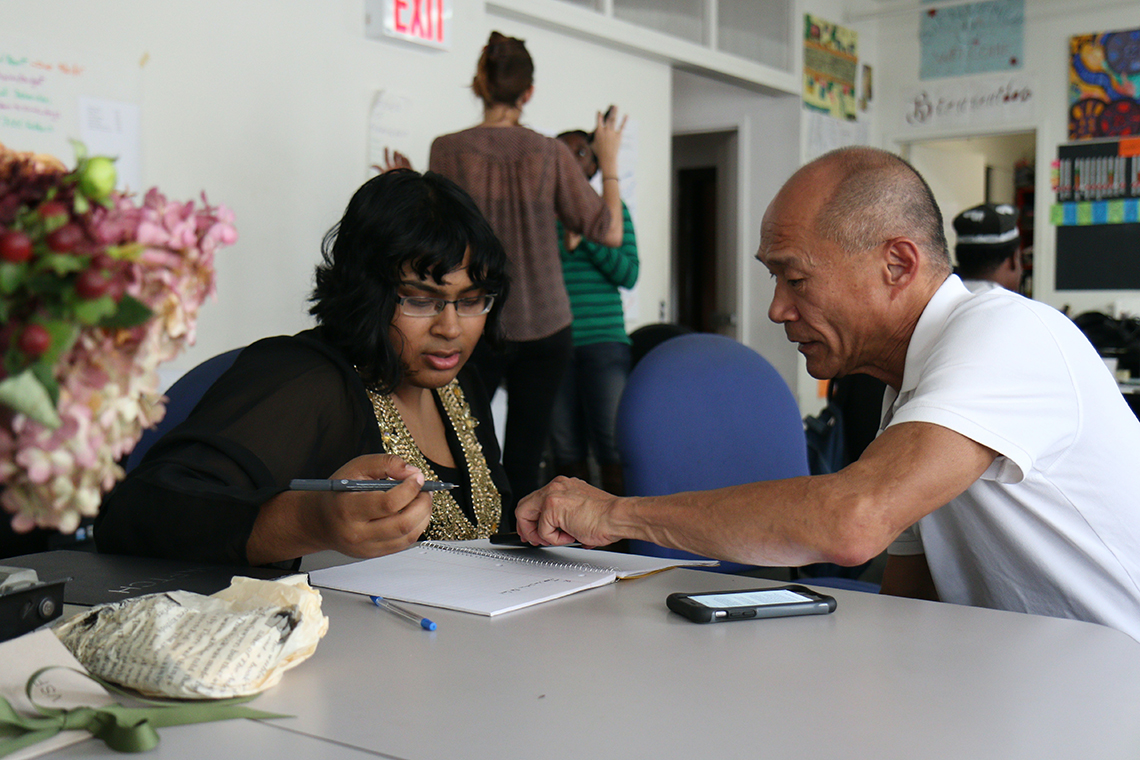The Center for Gerontology at Concordia University Chicago fosters learning and drives practice for positive social change to improve the lives of people as they age.
As an applied center for Gerontology, we strive to make a difference in the lives of older adults and their families, and have a meaningful impact on the community we serve through our work in four strategic focus areas:
- Academic and Experiential Education
- Service Based Practice and Policy Shaping
- Community Engagement [Intergenerational Connection and Communication]
- Applied Gerontology [Research, Translation and Dissemination]
Gerontology: A Growing Field Across Disciplines
The Center for Gerontology 2025 Careers in Aging presentation featuring Dr. Nina Silverstein and including Eric Cho, MSW, Beth Truett, BS, MDiv and Desiree Schippers, MFA. Panelists highlight the importance of interdisciplinary collaboration. You are invited to view this important conversation addressing intersectionality among disciplines, current trends, and emerging opportunities in the field of aging. [March 12, 2025]
Upcoming Center for Gerontology Events

Ageism Unmasked: Exploring Age Bias and How to End It, on September 30, 2025, at Noon CT via Zoom. Register Today!
Join the Center for Gerontology in celebrating Ageism Awareness Day with an eye-opening online presentation by Dr. Tracey Gendron. Author of the acclaimed book, Ageism Unmasked: Exploring Age Bias and How to End It, Tracey will distill decades of research about aging and age discrimination into a thought-provoking and sometimes humorous conversation.

Dr. Gendron will reveal the commonly accepted myths and misconceptions people of all ages face. With sharp wit and real-world examples, she will offer practical steps to help us challenge ageism in ourselves, our communities, our policies, and our culture. You'll emerge from this enriching hour with Tracey with fresh insights.
Gerontology is the scientific and social study of the process of aging and the particular issues faced by older adults. Gerontology covers a broad spectrum of disciplines:
- The study of physical, mental, and social changes in older people as they age
- The investigation of the changes in society resulting from our aging population
- The application of this knowledge to policies and programs
Gerontology and geriatrics are complementary, overlapping, yet distinct disciplines that follow different paths through training and career application. Gerontologists engage an interdisciplinary and multidisciplinary perspective in analyzing the impact aging has on society and, conversely, society’s impact on aging. Geriatricians are clinicians who hold MDs and view the field through a medical lens.
Aging populations mean more older learners are looking to higher education to meet their professional needs as they experience longer work lives. Similarly, many older adults plan to stay engaged in some form of learning for personal development, with college campuses providing an appealing educational destination. This is why the Center for Gerontology at Concordia University Chicago is proud to be a member of the Age-friendly University (AFU) Global Network.
Founded at Dublin City University in 2012, the network consists of more than 100 institutions of higher education around the globe. Concordia-Chicago is one of only three universities in Illinois to hold an AFU designation.
Members endorse the 10 AFU principles and commit to becoming more age-friendly in their programs and policies. These principles seek to complement the World Health Organization’s Age-Friendly Communities Program, and now serve as a core component of the age-friendly ecosystem.
Recognizing that ageist beliefs permeate society, the Center for Gerontology celebrates the University’s AFU designation. We invite you to stand with CUC as we address ways that higher education can shape teaching and learning environments to disrupt ageist beliefs and biases in constructive ways and promote intergenerational solidarity.
Ten Principles of an Age-Friendly University
|
|
The Age-Inclusive Higher Education (AIHE) program is designed to support the enrichment and pursuit of special interests among older adults through participation in select relevant courses at the University.
This program was designed in partnership with the Age-Friendly University Global Network, which seeks to further education worldwide based on persons’ stage of life rather than only their numeric age. Concordia University Chicago is committed to offering intergenerational academic opportunities for the community, alumni and retired faculty.
The Center is looking to assess community interest in auditing non-credit courses or participating in for-credit university courses at a reduced fee/tuition level. Additionally, the focus groups will assess interest in half- and full-day seminars, distinguished speaker events and other forms of high-quality, low and no-cost Age-Inclusive Higher Education, both online and in-person.
Learn More About AIHE Programs at CUC
Email Beth Truett, or
Call/text 708-271-2834
We all operate in the world. We’re all aging. We’re all embedded in families that are aging. As individuals and as a society, we benefit from understanding aging and gerontology. Gerontological literacy, that is, knowledge about aging, is an asset that empowers ourselves and others to capably navigate the transitions and challenges that arise as we move through the life course.
Given the diversity of the aging population and its diverse needs, there are many ways to function as a gerontologist. Academic gerontologists hold graduate-level degrees in gerontology and are trained in current approaches to education, research, and teaching. Professionals working in the field promote improvements in policy, whether employed in the public or private/corporate sector. Gerontology is also a welcoming field for consultants and change-making entrepreneurs.
Expanding Career Opportunities
Widely publicized stats indicate that as life expectancies increase, the number of older persons is growing. This trend holds true not only in the United States, but globally. The growth of the elderly population will continue into the future. By the mid-21st century, one in five Americans will be over 65 and 15 to 18 million Americans will be 85 or older. These growth trends forecast a rising demand for professionals with expertise in aging. Expanded career opportunities are predicted for many disciplines and professions related to gerontology and geriatrics.
A Stimulating and Rewarding Field
The field of gerontology offers many diverse employment opportunities. This diversity exists, in part, because older persons are not a monolithic demographic group. As we age, our experiences, needs, resources, and abilities vary, impacted by our gender, race, ethnicity, and economic status. Many older adults are healthy and active. Gerontologically-trained persons working with these older adults might provide educational opportunities, recreation and leisure programs, and volunteer activities. Many older persons have reduced capabilities. Jobs that relate to these more vulnerable elders might be in long-term or other health care settings or in agencies that deliver services to older persons.
Making a Difference
Professionals working in aging-related disciplines report great satisfaction in addressing the challenges of community members who are growing older and helping to maintain the quality of their lives. The benefit flows both directions: those who work with aging adults enjoy the wit, wisdom, and creativity of the older persons with whom they come in contact.
While a student you can make a difference by volunteering your service with programs that enhance quality of life for aging adults. Opportunities to share your expertise as a volunteer will enrich your experience at all career stages; speaking as an issue expert to civic and community groups and teaching in pre-retirement programs are common service activities for gerontology professionals.
Gerontologists are forward-thinking change-agents. Their work positively influences the agencies and organizations that serve older persons, as well as the legislation and public policy that affect our society’s treatment of its elder members.
The Specialist in Aging Ministry (SAM) is a 6-week online or 1 to 2-day in-person training program for lay leaders and church workers that provides insights for congregational ministry with older persons. Rooted in Christian theology and accepted gerontological principles, it examines some of the complex factors that affect growing older in the 21st century. The SAM curriculum considers how spiritual practices deepen the faith and foster well-being and emotional resilience among older persons.
SAM online includes 60 to 90-minute sessions, including devotions, presentations and group discussions. SAM in-person workshops are offered in one or two day formats. A 30-45-minute introduction is available upon request to enable congregations to decide whether to participate and ask further questions. Recommended participants in SAM training include caring and teaching professionals and volunteers with experience or a deep appreciation for older adults.
SAM is the only known program developed for Christian congregations and related service organizations through a gerontological lens. It includes a congregational readiness assessment, a template to create a Community Resources flyer and access to the Center for Gerontology for further counsel. Short readings appropriate for each topic are included together with a growing library of additional resources.
Learn More
Contact Us
Beth Truett, SAM Project Leader
crf_truettbj@cuchicago.edu
708-271-2834
National
- The New Old Age - New York Times blog
- American Association of Retired Persons (AARP)
- Eldercare Locator
- Medicare
- MedlinePlus
- National Council for Aging Care
- National Family Caregivers Association
- National Senior Citizens Law Center
- Population Reference Bureau: “Family Caregiving for Older People”
- Senior Citizens Bureau
- Social Security Online
State and Local
- Illinois Department on Aging
- Suburban Resource Guide for Seniors
- Cook County Age Options
- Oak Park Township Senior Services
- River Forest Township Senior Services
- Forest Park Community Center
- Celebrating Seniors (serving Oak Park, River Forest, Forest Park)
Activities/Active Lifestyles
Sigma Phi Omega (SPO), the international academic honor and professional society in gerontology, was established in 1980 to recognize excellence of those who study gerontology and aging and the outstanding service of professionals who work with or on behalf of older persons. The formation of a society provides a much-needed link between educators, practitioners, and administrators in various settings where older persons are served.
Concordia University Chicago’s Kappa Omega Tau chapter serves as a link within the Chicagoland area to promote interaction between gerontology educators, students, alumni, and local professionals. The chapter provides opportunities for personal and professional interaction, sharing of concerns, discussion of issues, and service activities.
SPO seeks to promote scholarship, professionalism, friendship, and services to older persons, and to recognize exemplary attainment in gerontology/aging studies and related fields. We welcome our gerontology students who are eligible to join the Kappa Omega Tau chapter.
- Chapter Bylaws (PDF)
- Membership Application (PDF)

Academic Programs
CUC offers several programs of study that equip individuals with the expertise and experience to make a difference in the field of gerontology.